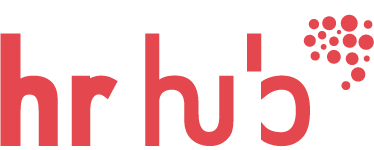5 Key HR Trends for 2016
On November 17th, Dell Bucharest hosted this month’s event, themed: “HR Trends for 2016”. More than 20 HR professionals were presented with the newest trends in HR and had the chance to discuss their applicability and presence on the Romanian market, as well as their rate of success and long term potential.
There are some voices stating that the HR department as we know it will disappear, or that, with the evolution of technology, most of the HR functions will be automated. We chose to look at things differently, embrace the changes and discuss whether their impact is a positive, or a negative one. This article contains the trends we discussed, insights we got out of the debates, as well as some questions we’re still trying to find answers to.
Strategic thinking will become in-house HR’s new core competence.
This refers to the ability to make accurate projections based on understanding the goals of the business and using metrics. Being able to analyze a process, having in mind both people and numbers, has become an important competence for the modern HR practitioner, as we have to report indicators as time to fill, cost per hire, training costs per employee and so on.
We came to the conclusion that, at least in Romania, we still have to take some steps towards increasing our credibility as business partners. Even so, we had some good examples of companies where the relationship between business leaders and HR grew to be valuable, so we have proof we’re moving in the right direction.
The pendulum will swing back to the specialist.
Throughout the years, one of the most wanted role in the industry (at least in Romania) was the HR Generalist one, as it had a wider area of accountability, and therefore more visibility. This trend addresses the existent fluctuations from the specialist to the generalist practitioner. Researchers state that in the near future there will be more specialized roles and HR Generalists as we know them will disappear.
We received several examples that sustained this trend – more and more companies tend to adopt role specialization and task division and rethink their HR department structure.
HR will increasingly utilize analytics and big data to augment its value to the firm.
In a world where everything is about data, the HR department will have to adapt and develop new competences around the analysis of data and metrics. Even though we already use some metrics such as turnover ratios and employee engagement levels, researchers predict that in the near future we can expect to see new metrics.
Our debate gave us some questions to think about: Is HR competent in the big data analytics area? How can we select the relevant metrics to analyze and not fall into the “vanity metrics trap”?
Managing a remote workforce will be the new norm.
More and more companies are starting to consider the remote work option when establishing the best location to hire, especially if we’re talking about niche roles. This is a controversial subject, as it could involve security or performance issues, and the opinions are still divided. Another thing that comes to mind when thinking about remote workforce, is the challenge that it brings to managers who are not effective in managing people at a distance or who never done it before.
We believe that in the near future, technology will evolve and we will have tools that will measure and analyze the work productivity instead of the working time. This will also have an impact on performance management processes, as we will have to think of a more data-driven way to implement them.
HR will need to become more like Marketing.
There is a lot of talk around the “war of talent” topic, and throughout the years we actually saw how the job market became more and more candidate driven. This is visible especially in the IT sector, where every company is fighting to get the best professionals, despite the fact that job opportunities exceed by far the candidate pool available on the market.
In order to stand up to the challenge, HR professionals will have to learn as much as they can from the marketing area. This will include social marketing coordination and brand ownership, that is, outside talent ‘buying’ into the brand–the company–to potentially work in the organization.
Even though we still have to develop in some areas to include new competences, such as strategy and business understanding, data analysis and marketing knowledge, we feel we’re on the right track and that there’s still hope for the HR department 🙂
At the end of the night, we received some great feedback from our guests who had a really good time and are looking forward to the next event!
